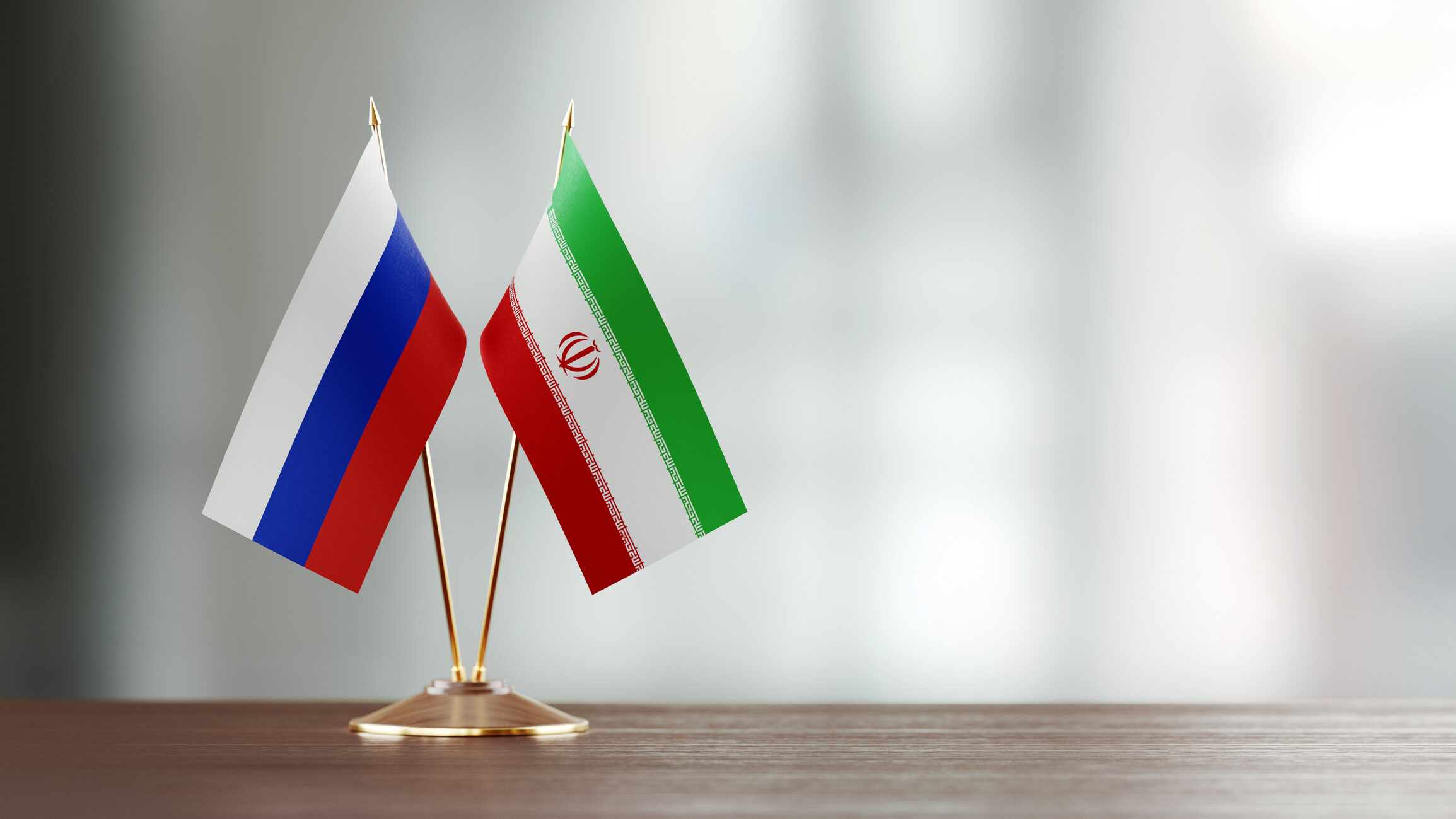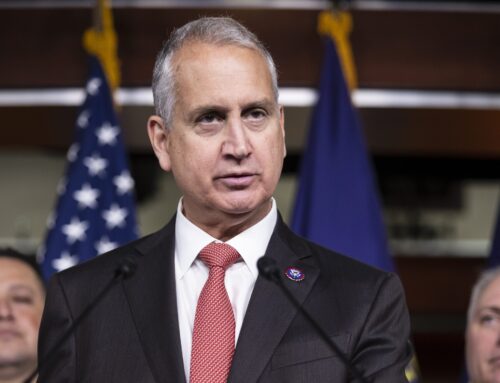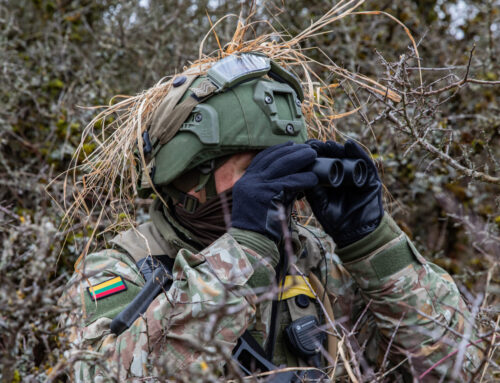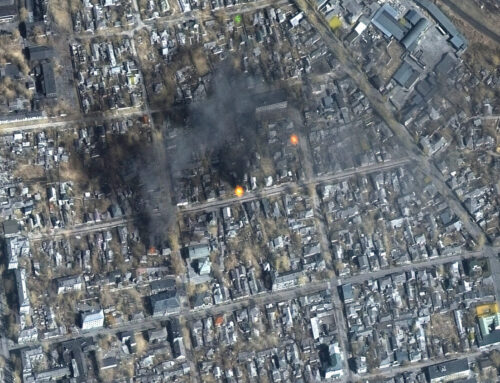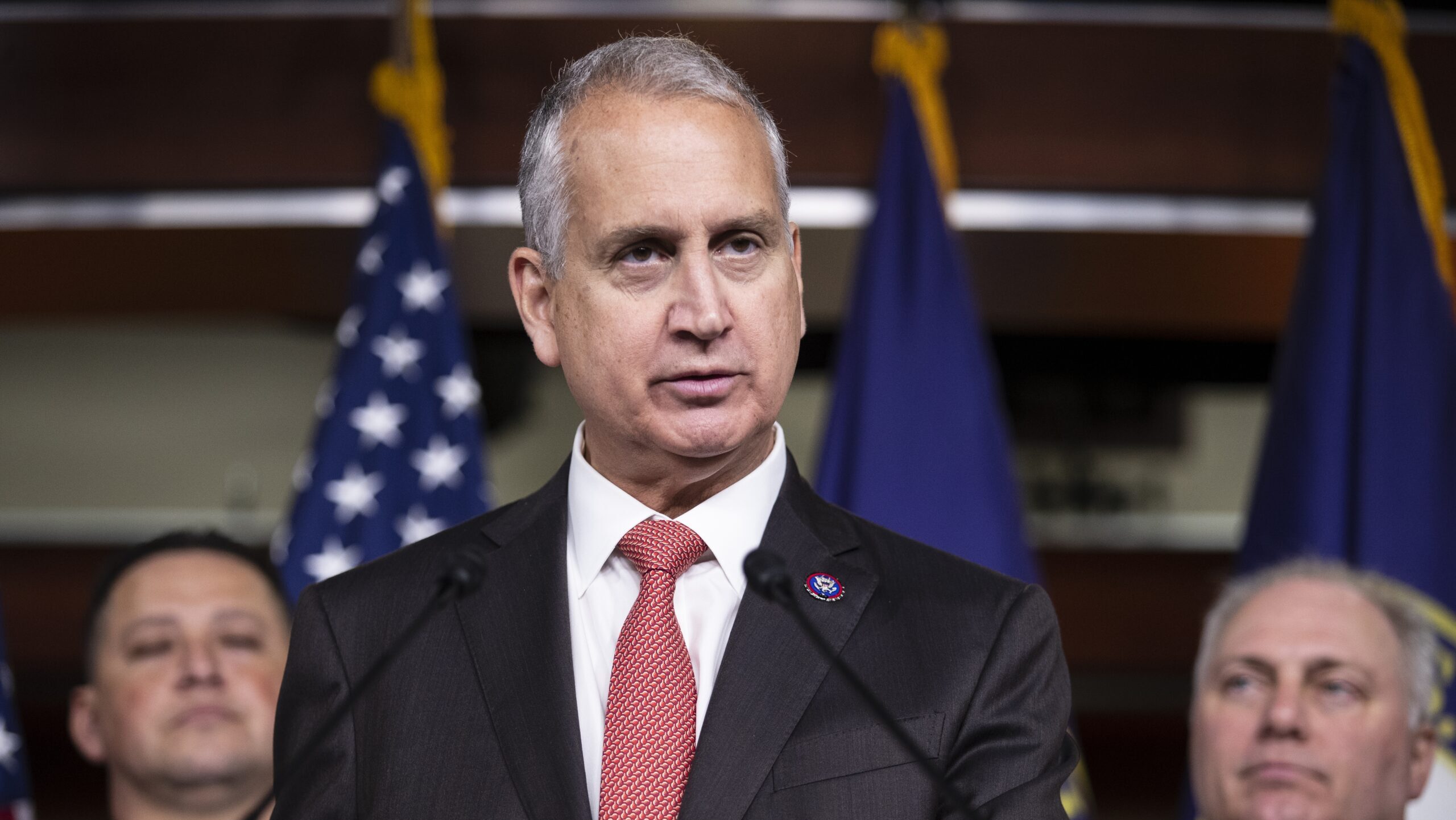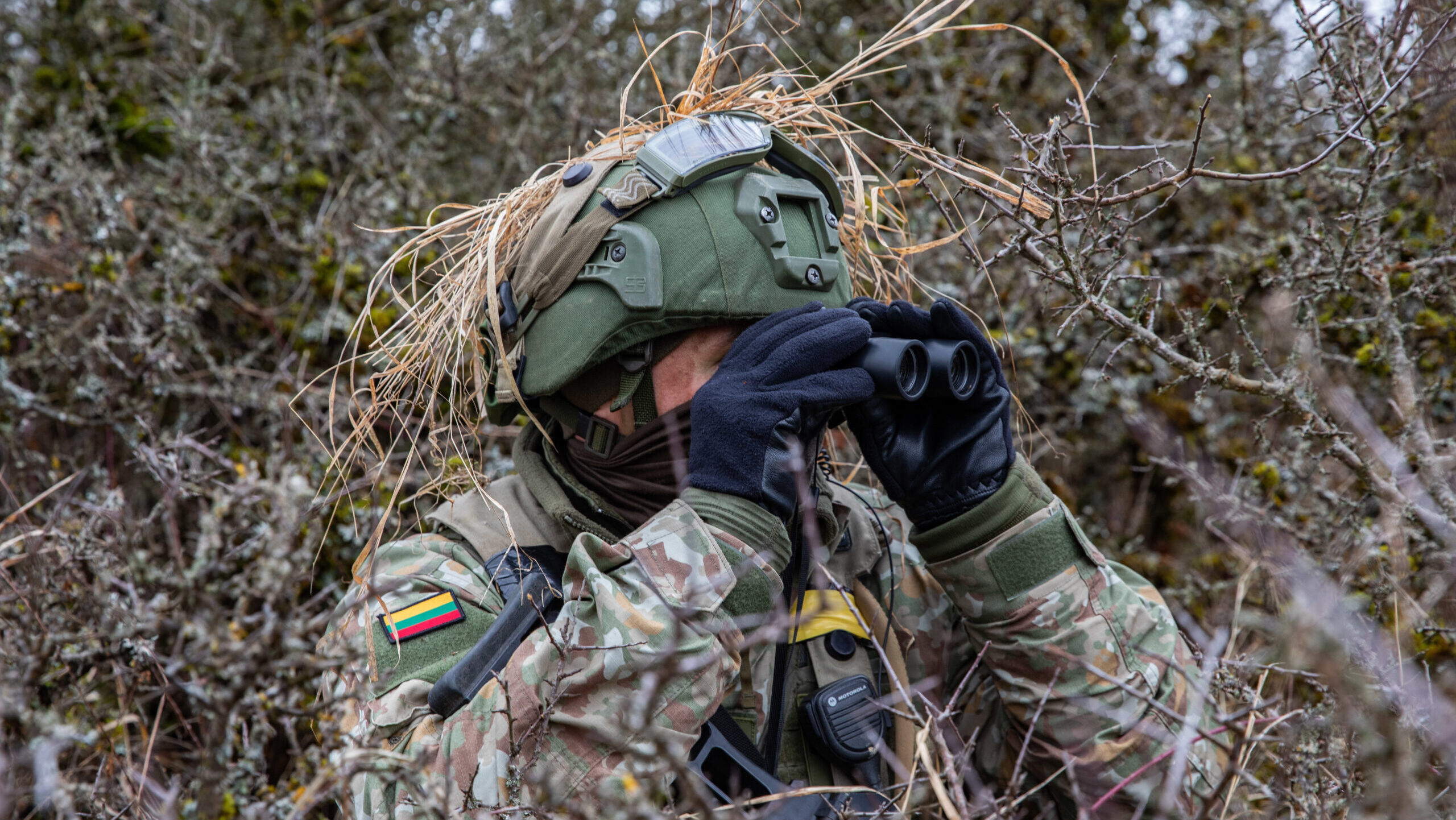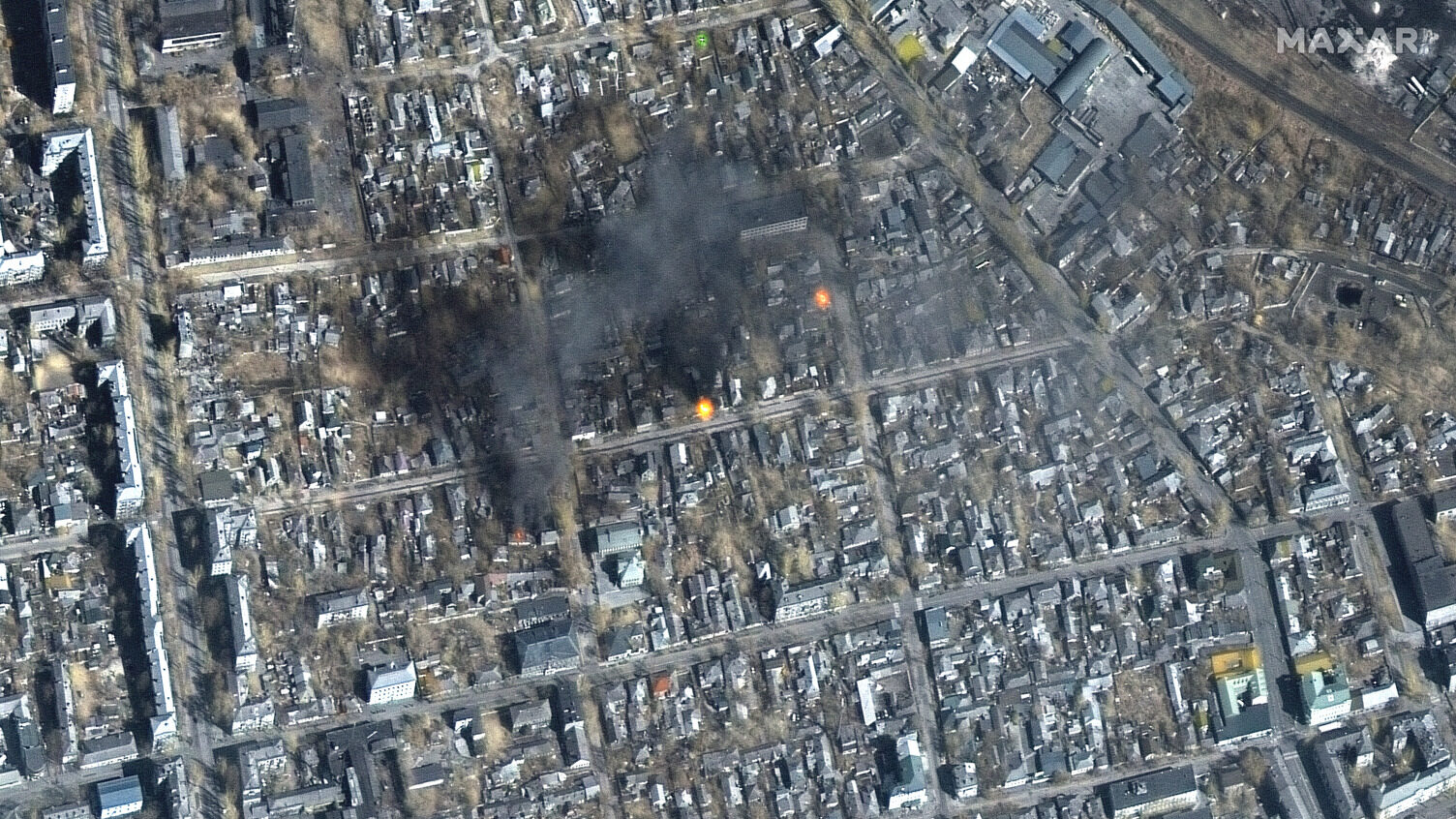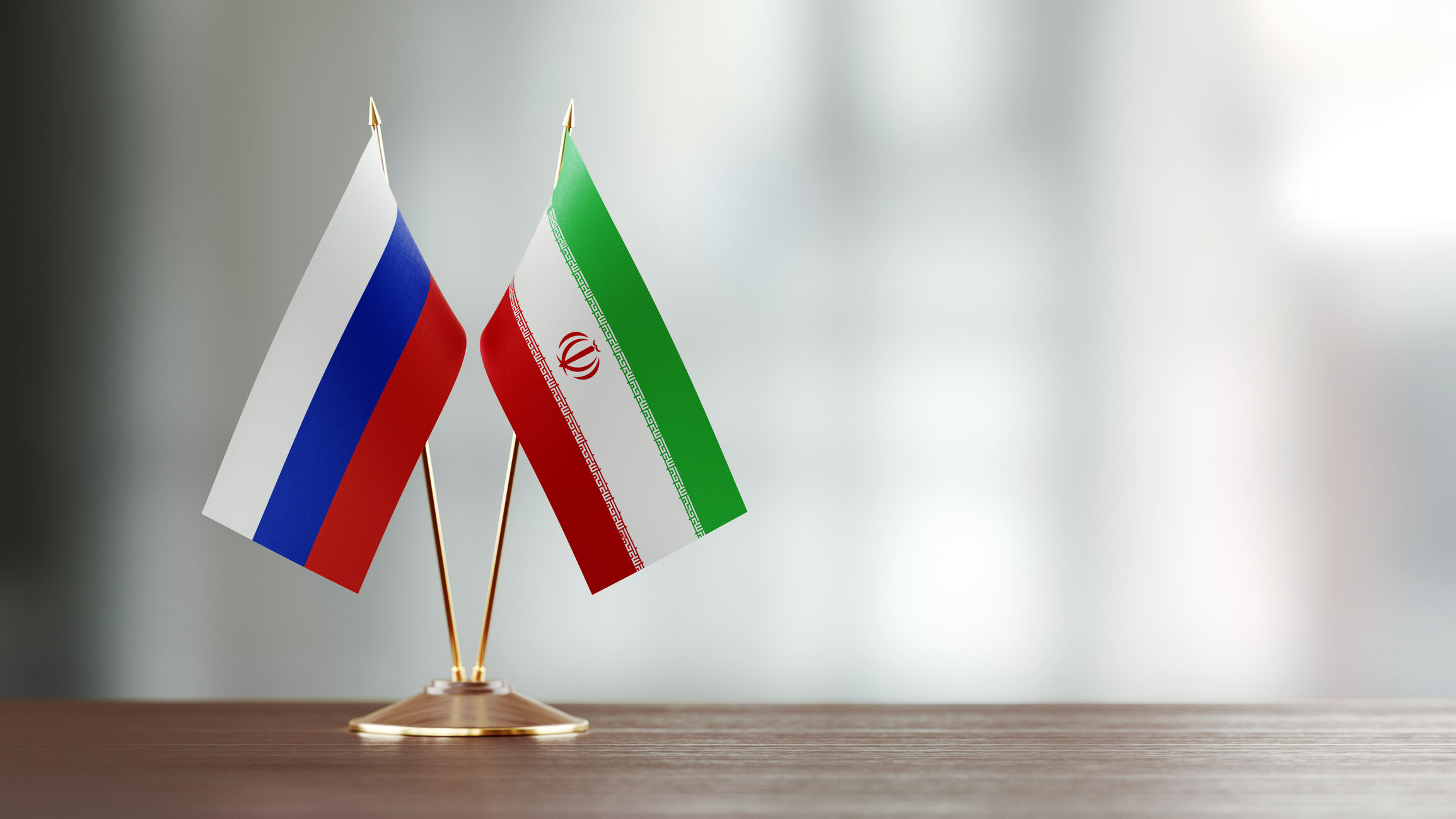
Russian and Iranian flag pair on desk over defocused background. Horizontal composition with copy space and selective focus.
BEIRUT — Months after the initial announcement, Russian President Vladimir Putin and Iranian President Masoud Pezeshkian signed today the long-awaited Comprehensive Strategic Partnership Treaty.
The agreement, inked in a ceremony at the Kremlin, “covers all spheres, including defense, counter-terrorism, energy, finance, transport, industry, agriculture, culture, science and engineering,” according to Russian news agency TASS.
“I am very pleased that this work has been completed. It is important, because it will open up an opportunity to give an additional impetus to practically all areas of our cooperation,” Russian president Vladimir Putin reportedly said during the meeting with Pezeshkian.
“We continue our large projects, including those in nuclear energy,” Putin said, according to a readout on the Kremlin’s website. “There are also other emerging projects in the energy sector and good prospects in logistics.”
Pezeshkian added, “We believe that our bilateral relations with the Russian Federation are strategically important and comprehensive. We will continue our robust conversation and our dialogue with you.”
In 2001, Tehran and Moscow signed a 20-year comprehensive agreement, and now, more than three years after that agreement expired, the two allies signed a new agreement, coming in the wake of already tightening defense cooperation between the two countries.
For example, Iran exported Shahed suicide drones to Russia and even inaugurated a facility in Moscow to manufacture them locally, aiding Russian forces in the operations against Ukraine, the Washington Post reported in 2023. Iran also operates Russian air defense systems, such as the S-300.
“They’re cooperating to develop and produce more lethal loitering munitions for Russia’s use in Ukraine and for Iran to proliferate to partners and proxies throughout the Middle East,” Jonathan Lord, director of the Middle East security program at the Center for a New American Security, told Breaking Defense in July.
While details about future defense cooperation of the treaty have not yet been revealed, Behnam Ben Taleblu, senior fellow at The Foundation for Defense of Democracies, also in July predicted that the treaty will go beyond deepening military and security ties.
“What Russia and Iran may cooperate on in the nuclear and space domains, where Iran has great interest and Russia has great aptitude,” he told Breaking Defense then.
Iran could increasingly be turning to Moscow for support after its proxy in Lebanon, Hezbollah, was greatly weakened by Israeli operations, and its strongest ally in the region, the Assad regime in Syria, was toppled by rebels there.
“Iran is at its weakest point since the Islamic Revolution,” US National Security Advisor Jake Sullivan said during an event at the United States Institute of peace on Wednesday.


